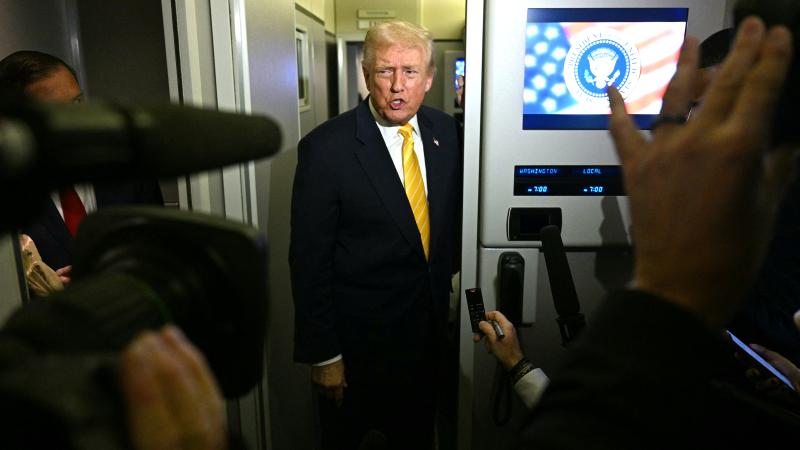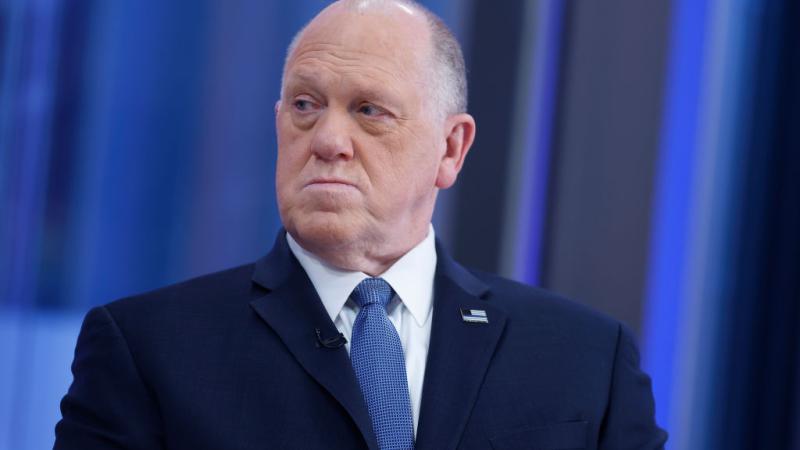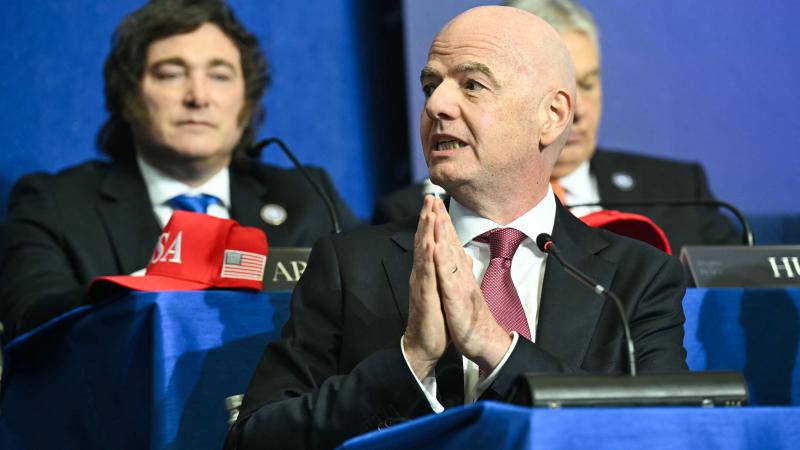Biden DOJ exposes dangers of insecure border with evidence in Bush assassination plot
From FBI Director Chris Wray to federal prosecutors, the terrorism and criminal consequences of administration's border policies come into sharper focus.
Homeland Security Secretary Alejandro Mayorkas may continue to insist the U.S. southern border is closed and secure — but President Joe Biden's own Justice Department and its current FBI director are painting a picture of a border porous enough to tempt terrorists to assassinate a former president and drug cartels to operate with impunity.
The latest evidence to conflict with Mayorkas' assurance came this week when federal prosecutors unsealed criminal charges against an Iraqi national in the United States, alleging he was planning to smuggle four ISIS-linked terrorists from Iraq across the U.S.-Mexican border to help kill former President George W. Bush in retaliation for the Iraq War.
The FBI affidavit submitted to support the criminal charges against Shihab Ahmed Shihab provided chilling details of how Shihab planned to exploit the porous border, including recordings with FBI confidential sources (CS2 and CS2) where specific routes, fake IDs and facilitators were discussed.
"During an in-person meeting that was recorded by CS2, SHIHAB advised CS2 that SHIHAB's associates said there was a security issue with the brother CS2 wanted SHIHAB to smuggle into the United States," the affidavit stated. "Therefore, CS2's brother would now have to travel to Brazil first and then come up through Mexico and then into the United States. SHIHAB explained that the reason for this was that the United States, Canada, and Mexico all shared immigration information.
"SHIHAB advised CS2 that CS2's brother would now obtain a Brazilian Visa through SHIHAB and his associates and travel from Brazil through Mexico and then be smuggled into the United States."
The affidavit also highlighted how Shihab exploited changes to the asylum process made by Biden to stay in the country.
Shihab entered the U.S. in September 2020 on a visitor visa, according to court records. In March 2021, he applied for asylum. Under the Trump administration, if he'd applied for asylum, he'd likely wait in detention until his case was processed. If his application were rejected, he'd then be processed for removal.
But Mayorkas drastically altered the asylum process, allowing Shihab and many others entering the U.S. illegally to file asylum claims regardless of their eligibility as a way to stay in the U.S. Rather than remain in Mexico or be held in detention, Homeland Security released illegal immigrants into the U.S., prompting states' attorneys general to sue
Rep. Matt Gaetz (R-Fla.) has said it would take 14.5 years to deport all of the people the Biden administration has released into the U.S.
Five months after applying for asylum, Shihab began plotting to smuggle an individual he believed to be an Iraqi into the U.S. through the southern border as part of the plot to assassinate Bush. The individual was a confidential informant whose interactions were "coordinated under the direction of the FBI," prosecutors said.
One day after Shihab's case was unsealed in federal court in Ohio, FBI Director Chris Wray gave a stark warning in congressional testimony about the consequences of the porous border, saying the U.S. border patrol now has "a heckuva challenge on their hands."
"Border security is a major challenge that cuts across a whole host of programs we serve, and the national security piece of it is one part of it," Wray testified Wednesday under questioning from Sen. Jerry Moran (R-Kan.).
"Certainly any porous point of entry is a potential vulnerability that bad actors of all sorts, including national security threats, can seek to exploit," he added.
Wray's assessment stands in stark contrast to Mayorkas, who said in a recent ABC News interview, "The border is closed, the border is secure," a claim that has been roundly criticized.
Since that time, the government has released documents to Rep. Chip Roy (R-Texas), showing that 42 individuals on terrorist watch lists have tried to sneak into the country since Biden became president.
"More importantly: how many MORE dangerous suspects were in the over 600K known gotaways who evaded law enforcement because Biden and Mayorkas REFUSE to secure our border?" Roy asked in a tweet releasing the data.
A few days later, federal officials allowed a suspected terrorist into the U.S. last month when he posed as a migrant at the southwest border. The suspected terrorist, identified as Isnardo Garcia-Amado, 35, was released into the U.S. by Border Patrol agents April 18 near Yuma, Ariz. He was then arrested two weeks later after the FBI matched him to a terror watch list.
Mark Morgan, the former acting commissioner of U.S. Customs and Border and Protection under President Donald Trump, told Just the News on Wednesday there is mounting evidence that weak border security is putting American security at grave risk.
"Our borders are wide open, terrorists are coming in," Morgan told the John Solomon Reports podcast. "Gang members, criminal aliens and drugs are pouring in and killing Americans every single day. We're living in an alternate universe why we're allowing this to happen."
















